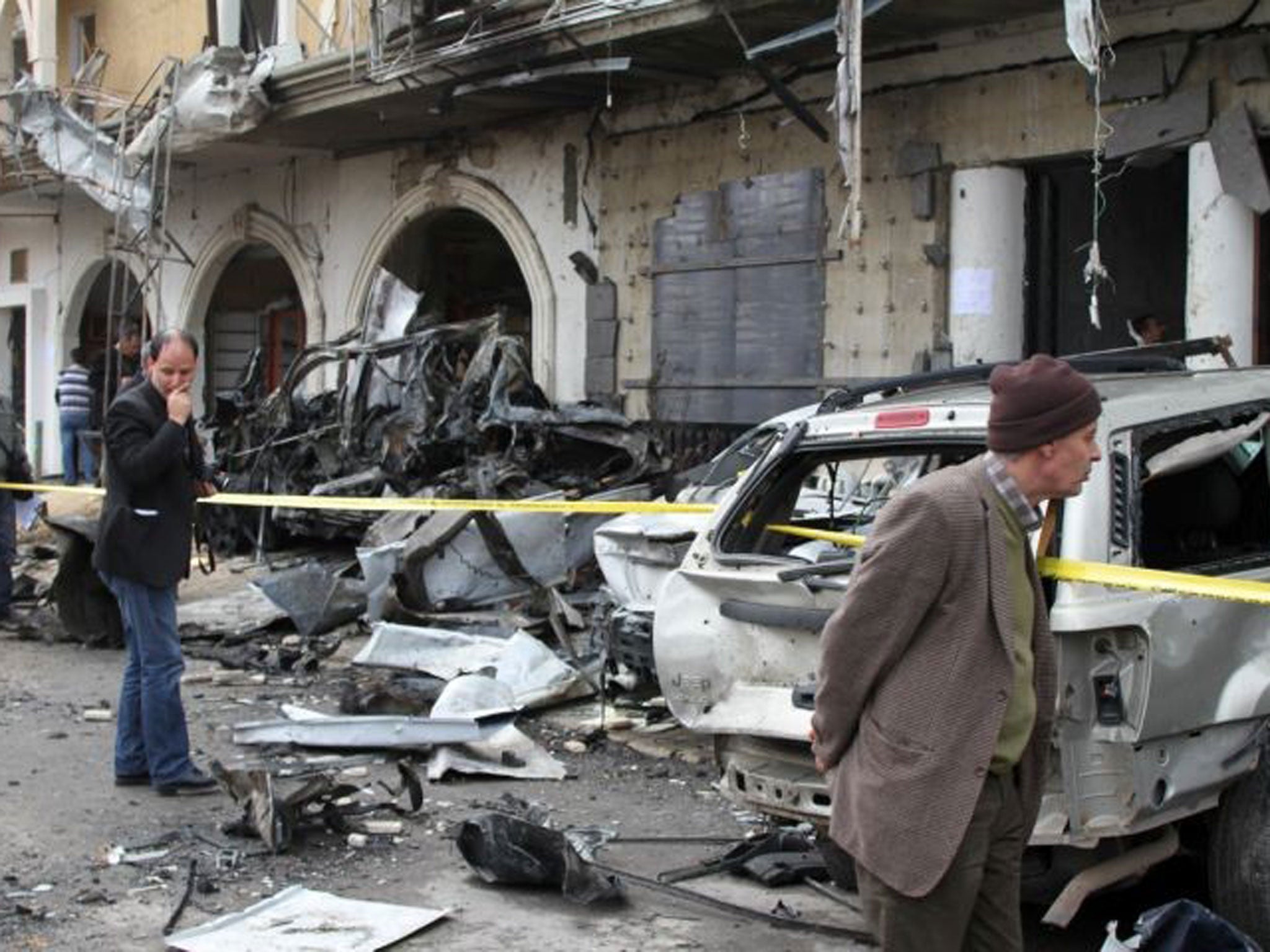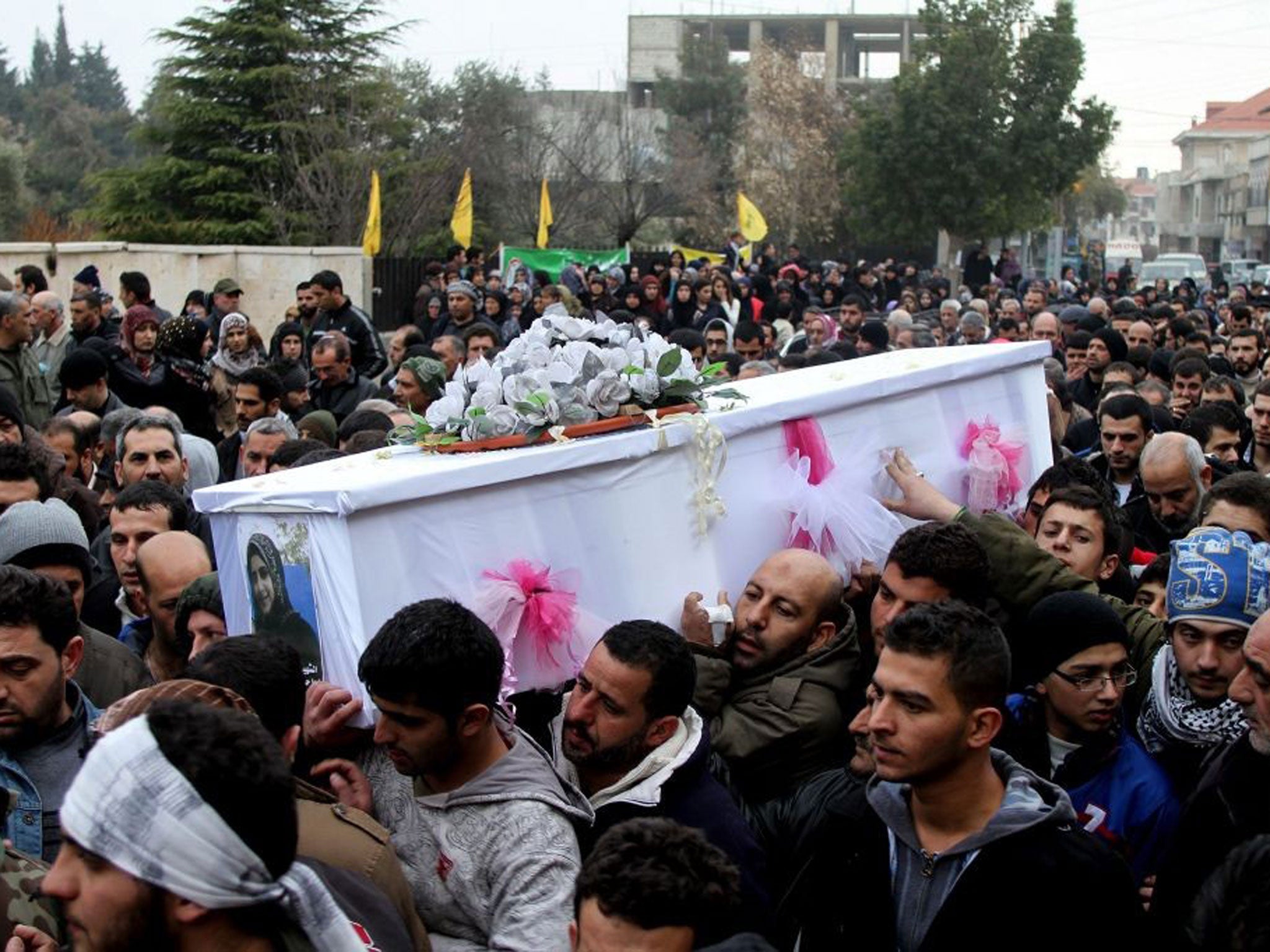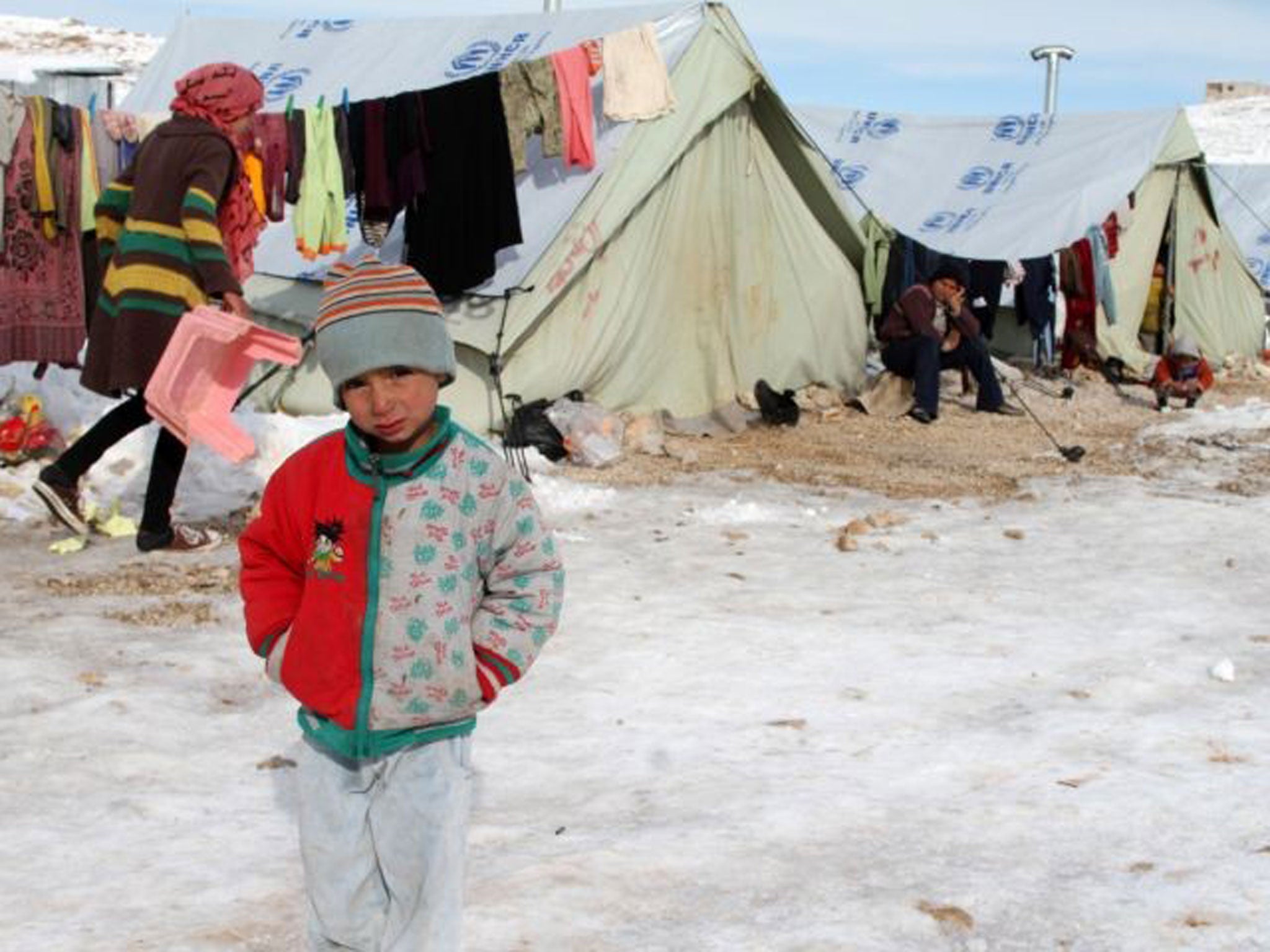Lebanon simmers by Syria's side: Terror attacks drag Lebanese communities into civil war next door
Suicide bombers target Hezbollah strongholds across the porous border

The arched façade of the shopping centre is still blackened with soot and piles of debris, and building material marks the spot where a suicide bomber detonated his belt, and his car, two weeks ago.
The explosion killed five people; among the 40 more wounded was Ali Shaheen, a pharmacist, who was making coffee at the time of the blast. "Everything collapsed around us," he recalls. The attack has made residents of Hermel, a "100 per cent Shia" town where Hezbollah reigns supreme, resigned and fearful of a new threat that seems impossible to stop. "When it comes to suicide bombers, neither Hezbollah nor the Lebanese army can prevent such an act," said Shaheen, a father of three.
Although this is its first suicide bombing, it is not the first time the town has felt the consequences of Hezbollah's role in the Syrian war. Over 150 rockets have rained down on Hermal and its surroundings over the past two years. Last night, a second suicide bombing hit the town, killing three.
The Hezbollah leader, Hassan Nasrallah, formally announced that the group was fighting alongside the Syrian army last May, when his forces played a crucial role in expelling rebels from Qusayr, just across the Lebanese border. Since then, five suicide bombings have hit Dahiyeh, a Hezbollah stronghold in Beirut's southern suburbs.

Several of the attacks, including Hermel's suicide bomb, have been claimed by Jabhat al-Nusra, an affiliate of al Qa'ida that began operating in Lebanon towards the end of last year. Last Sunday, the group released a statement on Twitter telling fellow Sunni's to stay out of Hezbollah areas. "Iran's party [Hezbollah] and all its bases and bastions are legitimate targets for us, wherever they are," the group said.
Hezbollah has always argued that it entered Syria to prevent Islamist elements from reaching Lebanon. But far from being a deterrent, the increased violence has made Hermel residents happy that Hezbollah has entered the fray. Doctor Hussein, a local anaesthetist who treated a number of victims of the Hermel blast, was initially against Hezbollah's involvement in Syria. But he has since reconsidered. "Imagine what would happen here if Hezbollah didn't enter the conflict," he said.
Residents and officials in Hermel are clear about who is responsible for the violence: a combination of takfiri (apostates), jihadi's and islamists. And, they say, the residents of Arsal, a Sunni town 30 minutes down the road, are harbouring them.
The two villages are a microcosm of the Syrian conflict on Lebanese soil. Hermel is important as a logistical hub for Hezbollah and an easy access point for its fighters across the border. The town is known as the "capital of the resistance".
Arsal fulfils a similar role for the Syrian rebels. It provides a vital supply route for those still fighting in Qalamoun, just across the border, and around Damascus.

Family ties here stretch across the porous border and, from the start of the conflict, Arsal's Sunni residents have been sympathetic to the Syrian rebel cause. The town has welcomed thousands of refugees, its population of 40,000 swelled by 60,000 Syrians. Informal tented camps dot the town's outskirts, and every unfinished building now houses more than one family. Hidden among women and children are the thousands of rebel fighters who come to recuperate.
The town's strategic position allows them to do so. It lies at the end of an unpaved, rocky road that winds up into the Anti-Lebanon mountain range. The route, leading first to limestone quarries, continues into Syria and facilitates the heart of Arsal's economy: the smuggling of fighters, ammunition and weapons.
Syria's air force has noticed, regularly bombing the surrounding area, while Arsal itself has suffered a barrage of rocket attacks over the past two years. Following the suicide bombing in Hermel, just such a rocket attack left seven people dead in Arsal, among them five children.
The residents blame Hezbollah for attacks like these. Arsal is surrounded by Shia towns, and many fear to leave the safety of their Sunni enclave. "They are terrorists," says Abed Hasan Hmeil, 24, a quarry worker, who is certain that making a visit to Hermel would end in arrest or death.
Recently the town has been squeezed by the Lebanese military stepping up its operations. On Friday, the Lebanese army stopped a large shipment of ammunition and made several high-profile arrests. Tensions between Arsal and its Shia neighbours are set to escalate when the rebels' strategic position in central Syria, Yabroud, comes under attack. A Hezbollah official said that battle would start "within days".
Clearing Yabroud has become "a top priority" for Hezbollah, as many of the attacks targeting the group in Lebanon have originated there. "The rebels are accelerating the ending of the Qalamoun battle," the Hezbollah official said while sipping coffee in his office. He said it was unclear whether Hezbollah would allow fighters to leave the battlefield once the fight starts. After the third week of fighting, a humanitarian corridor was opened, allowing many fighters to escape. The official admitted that had been "a mistake".
The loss of Yabroud would be "a disaster for Lebanon and Syria", said Alain as he sat in a makeshift clinic in Arsal. The young man was wounded while fighting with "an Islamist group" in Yabroud five months ago. He is an English language graduate, with a professed love of George Bernard Shaw and William Shakespeare, and who now has a metal pin sticking out of his lower leg.
If defeated – and allowed to leave – the sole place to retreat to, he thinks, will be Arsal. "The only way is here," he said in the improvised clinic. "The regime has surrounded the area," he added, before repeating: "The only place is here."
Join our commenting forum
Join thought-provoking conversations, follow other Independent readers and see their replies
Comments